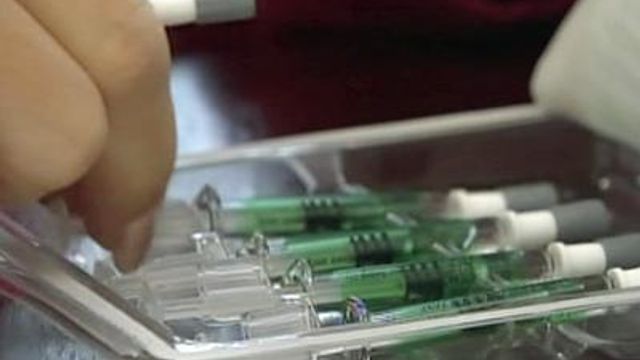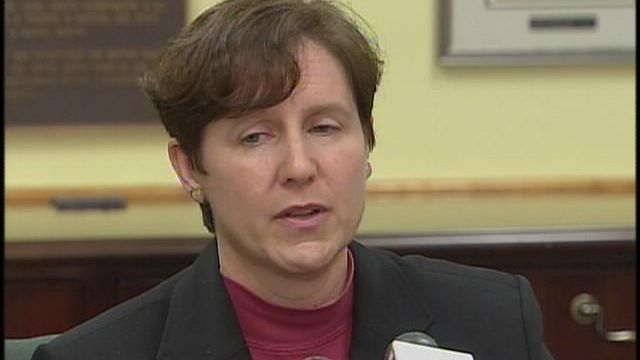Counties receive nasal H1N1 vaccinations
The long-awaited first vaccinations against the H1N1 virus – the squirt-in-the-nose kind – have started to arrive in North Carolina.
The state ordered 52,000 doses of FluMist last week with the first shipments slated for health departments. Durham and Wake counties each received about 200 doses Monday of the nasal vaccine, which is only recommended for healthy people ages 2 to 49.
Wake County received an additional 3,300 doses on Tuesday. The county's health department said doses of FluMist will be administered starting on Thursday. Wake County will put aside 500 doses for EMS and health care workers.
Doses are being sent to health department branches in Zebulon, Wake Forest and Fuquay-Varina. FluMist will also be available at the Sunnybrook Health Building at 10 Sunnybrook Road in Raleigh.
“We are going to prioritize children and also the caregivers of children that cannot receive the vaccine themselves,” Wake County Community Health Director Sue Lynn Ledford said.
Ledford said people not fitting into those categories will need to be patient.
"I don't feel anyone should be in a panic trying to get the vaccine. I believe if they want the vaccine, it's going to be available," Ledford said.
State epidemiologist Dr. Megan Davies said the vaccinations were divided in the state by population. Most health departments should have the vaccine by the end of day Tuesday, she said.
Four health systems – Novant, ECU, Duke and Wake Forest – also received the vaccination, Davies said.
Davies said FluMist doesn't work as well in older adults possibly "because those people have had the flu often enough in the past they've got some immunity in their nose already."
Since not everyone can take the nasal vaccine, the state expects to begin receiving injectable H1N1 vaccines in the coming weeks.
Individuals in the priority groups who wish to receive a H1N1 vaccine should contact their health care providers or their local health departments to find out about vaccine availability and possible costs. The vaccine itself is provided by the federal government at no charge, but private providers may charge a fee for administering the vaccine.
Health officials recommend getting vaccinated for both the seasonal flu and H1N1.
Davies said flu activity in the state has not waned. "We are still seeing high number," she said.
Those most at risk for getting the seasonal flu are: people 65 and older, people of any age with chronic medical conditions (such as asthma, diabetes, or heart disease), pregnant women and children under 18.
Those most at risk for getting H1N1 are: pregnant women, caregivers for infants who are 6 months old and younger, health care workers (including hospital staff, clinical staff, Emergency Medical Services technicians, firefighters and law enforcement officers), anyone under 60 years old with a weakened immune system, children under 18 and young adults who are 18 to 24.
If administered by injection, both vaccines can be given on the same day; the mists cannot. The mist should also not be taken around the same time as anti-viral medication.
Durham officials said on Tuesday a second shipment of seasonal flu vaccinations are expected to arrive by Nov. 6. The county has already depleted its first shipment of the seasonal vaccine.The department will offer the seasonal flu vaccine that is left on Mondays, Wednesday and Fridays from 8:30-11 a.m. and 1-4 p.m.











